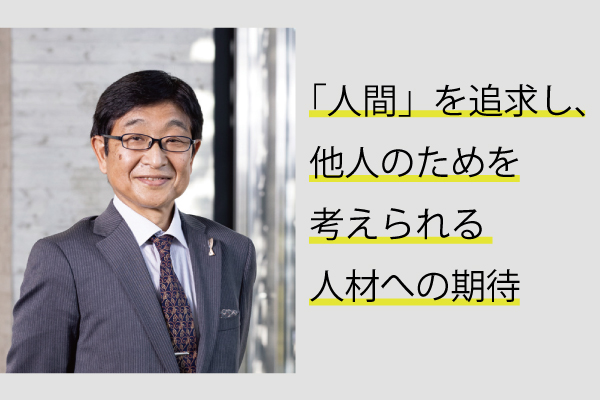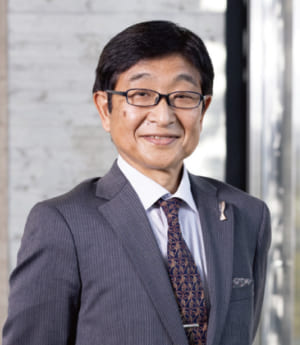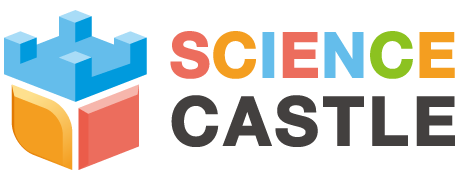- Information for Teachers
What kind of AI human resources can really play an active role in the future society? Expectations for human resources who can pursue "human" and think for the benefit of others."
2021.09.02
Serial 2
What kind of AI human resources can really play an active role in the future society?
What kind of mindset and skills will be needed in a future society where AI technology will be implemented in our daily lives? In this series of articles, we will report on the kind of AI human resources Otemon Gakuin University, which has established the "Artificial Intelligence and Cognitive Science" major in its Faculty of Psychology, is aiming for.
The era of high quality and mass production has changed to one in which the ability to quickly respond to the diverse needs of consumers is required. In such a society, what kind of AI human resources can play an active role? And what is needed to nurture such human resources? We interviewed Mr. Susumu Maruno of Otemon Gakuin University, who has abundant experience in corporate research.

Otemon Gakuin University Department of Psychology, Faculty of Psychology
Professor, Department of Artificial Intelligence and Cognitive Science
Susumu Maruno heDoctor of Engineering)
Joined Matsushita Electric Industrial Co. (now Panasonic Corporation) in 1978, and engaged in neurophysiology and AI research as a visiting scientific researcher at the University of Utah Medical Center in the U.S. from 1987 to 1989. In 2016, he was appointed as Director of RDMM Support Center, Kansai Science City Promotion Organization, and in 2021 he will assume his current position. His areas of expertise include intelligent information processing, image and video media processing, and neuro-AI.
Impatience with human resource development felt from corporate experience
After graduating from university, Mr. Maruno joined Matsushita Electric Industrial Co. He developed the "Adaptive Multiplication Vector Quantized Neuron" as well as approached the mechanism of how human beings process visual information in the brain. This is a mathematical model in which artificial neurons multiply in response to input signals, just like human neural tissue, and learn by self-generating networks. Using this model, Mr. Maruno has developed image tone correction technology that mimics human visual information processing. While working on various R&D, practical application, and commercialization projects at a company and leading the R&D department, Mr. Maruno realized that many Japanese students are good at finding the correct answer to a question that has an answer, but that is not enough. He realized the importance of human resources who can identify issues and ask questions on their own. It is too late for companies to develop AI human resources who can make use of AI in society," he said. He came to believe that "it is too late for companies to develop AI human resources who can make use of AI in society, and that middle and high schools, as well as universities, should take the initiative.
Who is the technology for? Human resources who can think about
What kind of thinking is important in order to apply AI technology to society? Mr. Maruno says, "Before thinking about what to do with AI technology, it is important to be able to see the issues that exist in society and in people's lives. We must not forget that AI technology is a tool to solve problems in society and people's lives. In the modern age, when consumer needs are diversifying, the ability to know what people want and to respond to them will be put to the test. In this respect, it can be said that those who can set issues to be solved by themselves and proceed to solve them are the ones who will be able to play an active role in the AI society.
A wide range of learning is necessary to understand "human beings."
What is AI research? It is the study of human beings themselves," said Maruno. For example, research and technology in the field of artificial intelligence is not based solely on information engineering knowledge. The wisdom obtained through the pursuit of human beings themselves is the cornerstone of such research. In other words, Maruno believes that for research in AI technology, it is necessary to reintegrate fields that have become fragmented through academic development and to integrate a wide range of knowledge. In response, Otemon Gakuin University has established a new major that allows students to study a wide range of fields, including artificial intelligence and cognitive science, without being bound by the boundaries of humanities or sciences. Maruno has high hopes for the program, saying, "We would love to have students who are interested in human beings and the brain, which controls our thinking. We hope that students who are looking for a place to learn not only in the field of artificial intelligence, but also in a wide range of other fields, will give Otemon Gakuin University's new major a try.
Otemon Gakuin University, Faculty of Psychology, Artificial Intelligence and Cognitive Science
For more information on admissions, curriculum, faculty members, etc., please contact(Please click here)for more information.
'TheEducational Support vol. 51From "The
